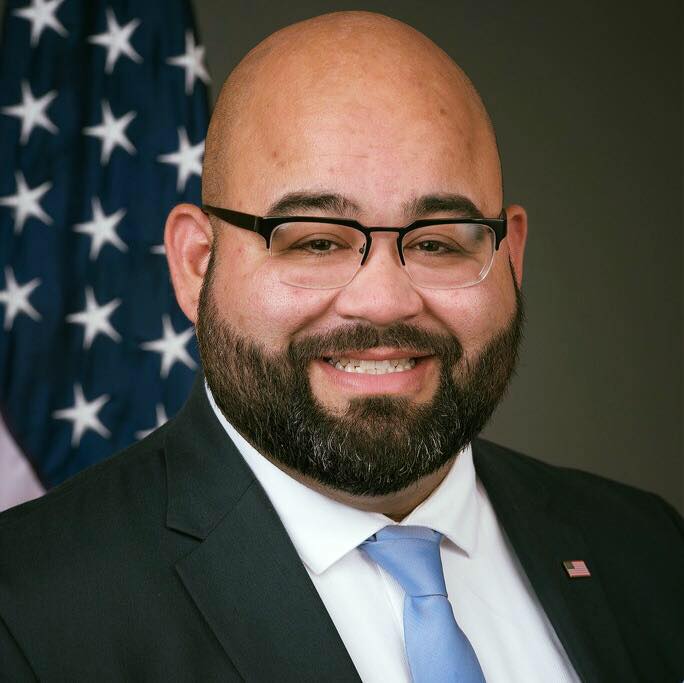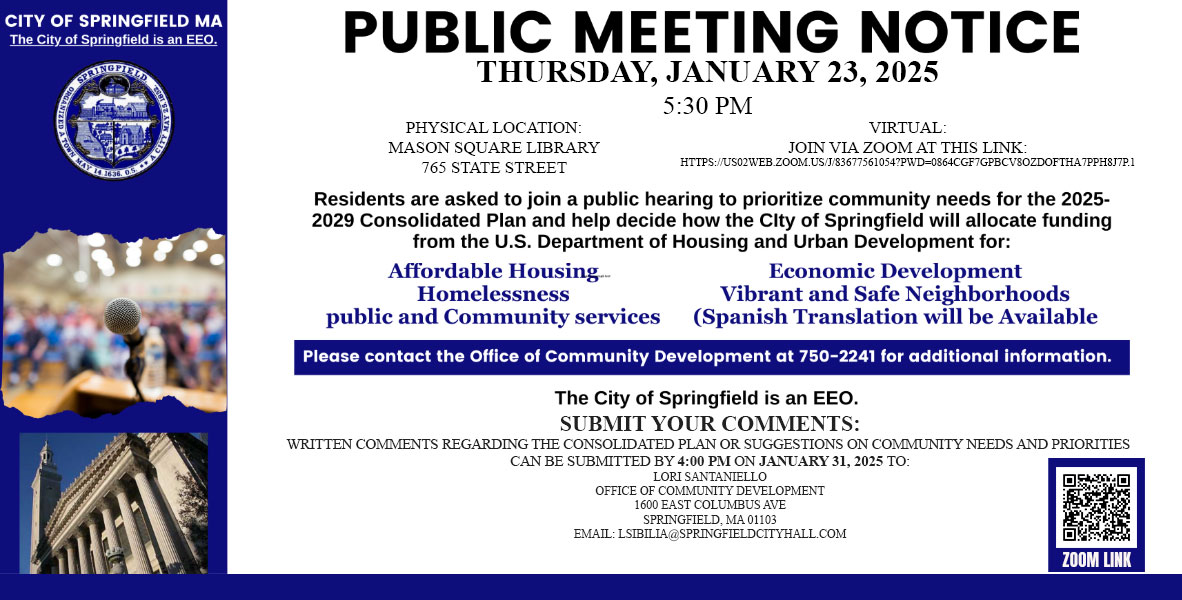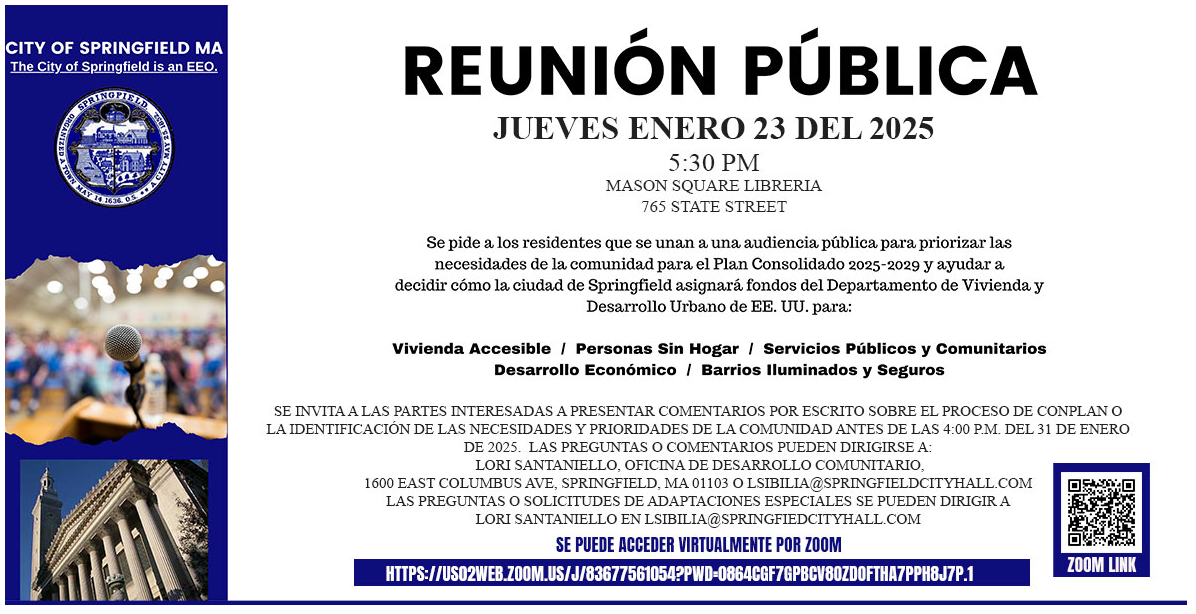By Sommers Smith
Lawmakers are reshaping the current districts eastward into Hampden, Hampshire and Franklin counties. The 28 member Special Joint Redistricting Committee includes 21 House Members and seven Senate Members. Among these members is our Hampden County Sen. Adam Gomez.
“We’re going to be redistricting not only Senate seats, we’re going to be redistricting probably the Congressional seats too. This is a redistricting of the whole map of the state of Massachusetts. Congressional lines can change, Senate lines can change, House Seats can change and also Ward seats, and School Committee seats can also change during this redistricting process,” said Sen. Gomez.

The redistricting process happens every 10 years, and during the last redrawing of the lines, Hampden County was created to be a minority majority district but it took 10 years for a person of color representative to be elected.
“This is the first time in years that Springfield has a Senator that lives in Springfield, which I’m very very humble to represent West Springfield, Chicopee and Springfield because all those communities are very very diverse, and this is the first time a person of color represents Springfield and Chicopee,” said Gomez.
The advantages of the redistricting process is having the opportunity to elect more representatives that look like us or come from the same environment we live in.
Also, among the redistricting committee is State Rep. Bud Williams, who expressed the goal of the committee is to make sure every vote is counted, “Every Black vote counts, every brown vote counts, every white vote counts,” he said.
Thus, it is important the Hampden districts don’t shift and we don’t lose real representation of color. The advocacy of the Western Massachusetts contingency is to ensure BIPOC voices are heard in the redistricting process on
the Senate, House and Ward level.
The impact on the Ward level is even greater when it comes to making sure our BIPOC communities are equally counted during the Census. The data and statistics collected from the federal census determines how necessary funding is allocated within these districts and that’s how they come up with these numbers on how to fund the specific districts.

“We did our statistics based upon the Census and what happens is the federal government gives us a number. We typically would have that number by now but because the Trump administration played games with the Census; they were trying to block it, trying to disorientate it, numbers could be lower,”said Rep. Bud Williams.
Williams continued, “We’re not getting those numbers until September and then technically we have to have the redistrict lines drawn by January by color because you have to live in your district as a State Rep for one year.”
Many people, including undocumented communities, were fearful and hesitant of answering the Census with the belief that they would face immigration backlash under the Trump administration.
Although it was a reasonable fear, it was false. The Census should be taken seriously because it’s important every person in our district is counted. When we’re under-counted, we can lose enormous amounts of funding. It is crucial that our districts are coherent on the processes and know exactly who represents us.
Sen. Gomez said, “We have to really make sure we’re counting everyone that lives within our Municipal Valleys and our districts because then that under-count can lose districts. We can lose a lot of representation when it comes to the disproportionate disadvantages that come with Western Massachusetts, and not having as many state reps or state senators as the eastside of the state, which the majority of the population has moved to.”
He continued, “Western Massachusetts has had a decline in population while the eastern side of the state has had an influx of people moving into it and staying in those Eastern Massachusetts cities.”
We now have an opportunity for communities of color to learn the process and be intentional when it comes to elections and knowing who represents us. We have to protect our large minority majority districts, such as congresswoman Ayanna Presley who represents Boston. Presley’s district will be losing 11,000 votes once the redistricting happens to appease other districts that don’t have the numbers.
Rep. Bud Williams said. “In Massachusetts there are over 10 minority majority districts. It’s just that we have to make sure people get out and vote. In those districts, Caucasians are in those seats but they’re designed for Black and Brown people — Asian, to be in those seats. We have to keep working the process, we have to keep voting, keep organizing [and] we have to keep running.”
Williams continued, “For example Worcester is designed to be a Black and Brown district but no one runs. We have to get more in tune with the process and get more coalitions. People have to run, the districts are there and you keep running and every year you build more and more.”
As Springfield residents, it is our duty to pay attention to state legislation changes that could affect the representatives that speak for our communities and vote. Without that representation, our communities essentially lose a voice that not only understands, but acknowledges our needs on a state level.
Gomez said, “I would love for people to make sure that they’re reaching out to their city councilors, do their research on what’s going on; redistricting as much as people don’t realize is a very very important process that we need to fully understand because the next time that this is going to happen is 10 years from now, and in a decade a lot of things can change.”
He continued, “This is very monumental, and it can be very very revolutionary for our communities to make sure that these lines represent the communities we live in and that we’re going to stay living in, and we’re trying to make sure that we have the right representation in the future.”
We need to encourage our amazing community leaders to run for these positions when they are open. Voting is a key component to being heard but running for representative, senate, congressional and even school committee seats is essential to our growth as a minority majority district. Without inclusion, there can be no true diversity because we are not integrating ourselves into the system that controls funding, resources and development.
Rep. Bud Williams said, “[We should focus on] inclusion opportunities within the district. Inclusion in wealth, inclusion in education, inclusion in healthcare, inclusion in economic development [and] inclusion in home-ownership. We’ve taught diversity for years and that hasn’t gotten us too far. We’ve made some steps in the process but not how we should have.”
“We always ask how our vote matters and here is your answer. If we don’t vote, we essentially don’t exist on the map. As a minority majority district voting and running for offices is the most powerful way for our voices to be acknowledged. It’s hard to be seen when your hand isn’t raised, so I ask you to step up when it matters. We are the numbers, so make yourself count.”





